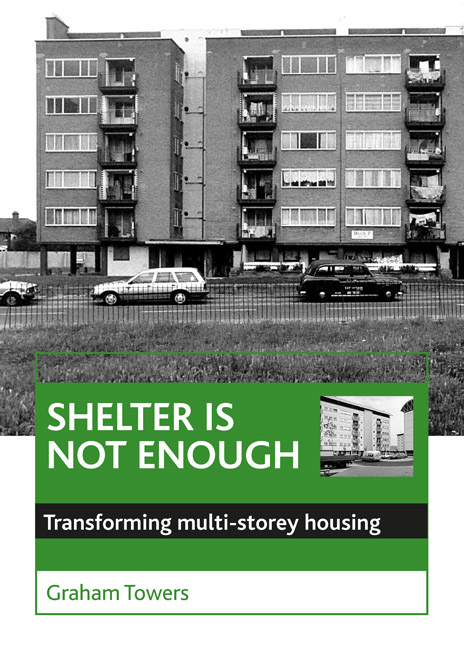Book contents
- Frontmatter
- Contents
- List of figures and tables
- Dedication
- Preface
- Foreword
- one Introduction
- two Forming the multi-storey legacy
- three Politics, economics and housing form
- four Social stigma and community action
- five Redeeming the estates
- six Facets of regeneration
- seven Building a model framework
- eight Prospects for transformation
- nine Ending the estate syndrome
- ten On broader horizons ...
- Bibliography
- Appendix: Case study research
- Index
ten - On broader horizons ...
Published online by Cambridge University Press: 05 July 2022
- Frontmatter
- Contents
- List of figures and tables
- Dedication
- Preface
- Foreword
- one Introduction
- two Forming the multi-storey legacy
- three Politics, economics and housing form
- four Social stigma and community action
- five Redeeming the estates
- six Facets of regeneration
- seven Building a model framework
- eight Prospects for transformation
- nine Ending the estate syndrome
- ten On broader horizons ...
- Bibliography
- Appendix: Case study research
- Index
Summary
Multi-storey housing in Britain has followed a tortuous path through history. A long slow build up when it was seen as an humane solution to the dense and unhealthy industrial city. A short period of high-minded idealism culminating in large conglomerations of cheap substandard mass housing. A rapid decline followed by intensifying efforts to put right the results of false economies and to reverse mistaken policies. The lessons from the record of improvement programmes show that given adequate investment and appropriate allocation policies, all such housing has the potential for redemption. A model framework for regeneration has been defined; a strategy has been set out through which reinvestment can be prioritised. Using these approaches, multi-storey estates can come to take a positive place in the diversity of cities. These lessons need to be applied in contemporary Britain but they may also have value in wider spheres.
On the geographical horizon there is much multi-storey housing beyond Britain's shores. Forms of multi-storey living are common throughout the world's cities. Often, cultural differences and varying policy framework make comparisons difficult. But in many parts of Europe there are strong parallels. There was often a similar history of urban industrialisation which commonly led to a developing commitment to social housing. In the post-war period large multi-storey estates were developed in and around many European cities. In recent years many of these have been beset with technical and social problems similar to those on British estates. Their continuing decline has created a widespread need for regeneration. With many of the problems sharing similarities, it may be that some of the lessons can be successfully reapplied.
On the temporal horizon lies the future shape of our cities and the pattern of the urban life-style. Continuing dispersal into low-density suburbs and satellite towns has created serious environmental concerns. The high cost of servicing such development and the huge demands generated for transport create massive energy consumption and increasing levels of pollution. Sustainability requires more compact, higher density cities. This goal can best be achieved by drawing on the traditions of urban living and making the best of the stock of buildings that already exist. The legacy of multi-storey housing – renovated through investment, repopulated with more suitable occupants and integrated into the wider community – can make a major contribution to cities which have a better quality of life and more sustainable systems.
- Type
- Chapter
- Information
- Shelter Is Not EnoughTransforming Multi-Storey Housing, pp. 205 - 222Publisher: Bristol University PressPrint publication year: 2000



